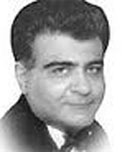
By Dr Niaz Murtaza
02 August 2016
BOTH Islamists and Islamophobes find Islam and democracy incongruent. Some cite a verse that deprecates majority views. To call Islam anti-democracy by citing a brief verse non-contextually is odd. Even in democracy, small ruling groups usually make decisions. Majority only decides who rules. The mode of this decision is the key contrast between democracy and other rules. We must view Islamic stands on such key democracy traits to gauge congruence.
Both Quran and Hadith are silent on the first key trait of how rulers get chosen. But silence means Islam views this as a secular issue, best left to people’s wisdom. How the first, most devoted, Muslims chose rulers during the Madina era is instructive. Since no edicts were given to them, their views on this issue clearly represent not edicts for future, but only guidance, to be adapted contextually. In fact, there were variations even in this brief era.
The Prophet (PBUH) had two roles: Prophet and, after migration, Madina ruler. The basis for the first was divine edict. The second came from not edict, dynasty or force but a request by Madina’s people. The majority Muslim view is that Islam didn’t mandate his successor or even a mode of succession. Again, the decision was found best left to the people despite their huge faith in divine and prophetic wisdom. And the people chose the first caliph through consensus. The first caliph chose the second. The third caliph was chosen by consensus. Multiple candidates were vetted and questioned, a bit like now. Tumult led to his death.
Yet, rebels or generals didn’t seize power, so sacrosanct was people’s will. People still chose the fourth caliph. There were no monarchies nor did generals depose people-chosen caliphs by force. Thus, early Muslim practice was not anti-democracy but anti-autocracy. One rarely finds such democratic selection in the early history of other faiths.
Early Muslim Practice Was Anti-Autocracy.
The next key democracy trait is that rulers govern with egalitarianism, accountability and participation. There are many verses and hadiths extolling these values among rulers, which Madina rulers practised. Rulers sat on floors with people and consulted them. Judges and people could question their views. All this was rare in the pre-modern era. Clearly, modern and pre-modern era standards differ. Even in the West a mere 100-plus years ago, after modern democracy’s dawn, one finds exclusion of women, colonies and low castes; slavery and massacres of aliens. But Madina rule, like Greece, represents a good example of pre-modern democracy. So democracy is not a Western import but a core part of Muslim history.
The third issue is the source of law, it incongruently being fully secular in ideal democracy but partially divine in religions. Secularism supports laws enhancing people’s welfare and only bans acts which clearly harm people. Religions usually support the first goal but ban some things which secularism terms benign (pork, beef, etc.). Is Islam inherently incongruent with secularism here, unlike other faiths? Muslims exhibit multiple practices here.
In the minority view found in brief Jihadi ‘caliphates’, all public life is harshly governed by their odd views on Islam. The second view exists in autocratic Saudi Arabia and hybrid Iran (around 10pc of the Muslim world together) where clerics dictate detailed Islamic laws based on Quran, Hadith and the views of imams. A last minority view exists in states like Niger that are secular.
The majority view exists in mostly democratic states like Pakistan, Indonesia etc. where clerics have at most advice roles. A small number of edicts, only those seen as timeless Quranic ones (e.g., ban on liquor etc.), become law there through the religion-inspired voting of elected officials. But bans based on the religious views of legislators exist to a lesser extent elsewhere too, eg, Indian beef bans, abortion bans in Catholic states, gay bans in Christian Africa and a US Congress majority against gay union and abortion even today.
Around 30 states have Christianity and 22 Islam as state religions. So, the difference is relative. Overall, Islam seems more congruent on two democracy traits and less on only one.
The chasm between secularism and religion is mainly due to latter-day clerics. Religions earlier were the main source of gains for weaker groups like women. Thinking minds saw the gains as tactical first steps by religions given the limited change capacities of any society and advocated for more steps once those changes got entrenched. But unthinking clerics saw them as the last word forever and religious thought on social progress froze.
Thinking minds then had to make secular fronts to push for more change. Thus, today, secular practice is far ahead of religions on social issues despite the latter’s big head start. A revival is needed in religions, including Islam, under thinking minds to restore their role as leaders on social progress.
Dr Niaz Murtaza is a political economist and a senior fellow with UC Berkeley.
Source: dawn.com/news/1274762/democracy-in-islam

No comments:
Post a Comment